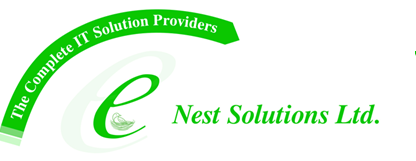Ubuntu’s open-source nature and strong community support make it one of the most powerful and flexible choices for IT infrastructure across businesses in East Africa. Its user-friendly interface and extensive documentation make it accessible for both novice and experienced IT users, ensuring smooth adoption and operation.
Ubuntu Versions: Choosing the Right Fit
Ubuntu is available in Long-Term Support (LTS) and regular releases:
-
LTS Versions (5 years support): Ideal for businesses seeking stability and long-term security. Examples include Ubuntu 20.04 LTS and Ubuntu 22.04 LTS.
-
Interim Releases (9 months support): Feature the latest software innovations but require more frequent updates.
The latest version, Ubuntu 24.04 LTS, released in April 2024, comes with enhanced security, optimized performance, and improved hardware compatibility. Key features include:
-
Linux Kernel 6.x series for better hardware support and performance enhancements.
-
Updated GNOME 45 desktop environment, offering a more intuitive interface and productivity improvements.
-
Enhanced security modules, including AppArmor updates, secure boot integration, and advanced firewall settings.
Native support for modern hardware, including high-performance SSDs, NVMe storage, and latest-generation CPUs.
Ubuntu vs. Windows 10: A Timely Advantage
With Microsoft ending Windows 10 support in 2025, businesses in East Africa face increasing security risks if they continue relying on outdated Windows systems. Ubuntu provides a robust, secure, and cost-effective alternative:
Hardware Compatibility: Ubuntu supports a wide range of hardware, from older legacy machines to the latest servers and laptops. This makes upgrading or repurposing existing hardware easier compared to Windows 10, which may have driver or licensing limitations.
Cost Savings: Being open-source, Ubuntu eliminates expensive licensing fees while offering similar or superior functionality.
Ease of Migration: Tools like Ubuntu Pro and migration assistants allow businesses to switch from Windows with minimal disruption.
Key Advantages of Ubuntu for IT Infrastructure
-
Open-Source Flexibility: Customize and optimize your systems to meet specific business needs.
-
Extensive Community Support: Access to tutorials, forums, and expert guidance for troubleshooting.
-
Security and Updates: Regular patches and updates protect systems from malware and emerging cyber threats.
-
Pre-Built Packages and Applications: Simplifies deployment of enterprise software, productivity tools, and server applications.
-
Hardware Compatibility: Seamless integration with a wide variety of desktops, laptops, and servers.
-
Scalability: Perfect for small businesses, educational institutions, or large enterprises in East Africa.
-
Energy-Efficient Operations: Optimized Linux kernel helps reduce resource usage, lowering operational costs.
Why Ubuntu is Ideal for East African Businesses
Ubuntu’s robust security, flexibility, and hardware versatility make it a strategic choice for businesses preparing for a post-Windows 10 era. Whether deploying desktops, servers, or cloud infrastructure, Ubuntu ensures reliable performance while minimizing costs. Its active local and global community also means businesses can access guidance quickly, reducing downtime and support overhead.
By adopting Ubuntu 24.04 LTS, businesses can future-proof their IT systems, leverage modern hardware, and ensure long-term support, making it a smart choice for the East African market.


Leave a Reply